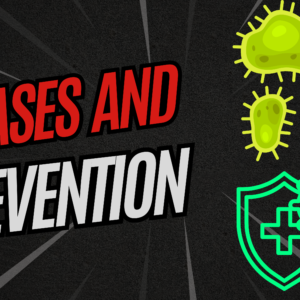Introduction
Effective communication in healthcare is the cornerstone of quality patient care. From doctor-patient interactions to interdisciplinary teamwork, clear and empathetic communication ensures that patients feel heard, understood, and supported throughout their healthcare journey. Let’s explore why communication is so vital in healthcare and how it can shape outcomes for both patients and providers.
Why Communication in Healthcare Matters
Healthcare is not just about diagnoses and treatments—it’s about people. Poor communication can lead to misunderstandings, medical errors, and dissatisfaction. On the other hand, clear and empathetic communication builds trust, enhances patient satisfaction, and improves adherence to treatment plans.
Whether it’s a doctor explaining a complex procedure in simple terms or a nurse providing reassurance during a tough time, the way healthcare providers communicate has a direct impact on the patient’s experience and outcomes.
The Power of Communication in Healthcare: Improving Outcomes One Conversation at a Time
Effective communication in healthcare is the cornerstone of quality patient care. From doctor-patient interactions to interdisciplinary teamwork, clear and empathetic communication ensures that patients feel heard, understood, and supported throughout their healthcare journey. Let’s explore why communication is so vital in healthcare and how it can shape outcomes for both patients and providers.
Why Communication in Healthcare Matters
Healthcare is not just about diagnoses and treatments—it’s about people. Poor communication can lead to misunderstandings, medical errors, and dissatisfaction. On the other hand, clear and empathetic communication builds trust, enhances patient satisfaction, and improves adherence to treatment plans.
Whether it’s a doctor explaining a complex procedure in simple terms or a nurse providing reassurance during a tough time, the way healthcare providers communicate has a direct impact on the patient’s experience and outcomes
The Power of Communication in Healthcare: Improving Outcomes One Conversation at a Time
Effective communication in healthcare is the cornerstone of quality patient care. From doctor-patient interactions to interdisciplinary teamwork, clear and empathetic communication ensures that patients feel heard, understood, and supported throughout their healthcare journey. Let’s explore why communication is so vital in healthcare and how it can shape outcomes for both patients and providers.
Why Communication in Healthcare Matters
Healthcare is not just about diagnoses and treatments—it’s about people. Poor communication can lead to misunderstandings, medical errors, and dissatisfaction. On the other hand, clear and empathetic communication builds trust, enhances patient satisfaction, and improves adherence to treatment plans.
Whether it’s a doctor explaining a complex procedure in simple terms or a nurse providing reassurance during a tough time, the way healthcare providers communicate has a direct impact on the patient’s experience and outcomes.
The Power of Communication in Healthcare: Improving Outcomes One Conversation at a Time
Effective communication in healthcare is the cornerstone of quality patient care. From doctor-patient interactions to interdisciplinary teamwork, clear and empathetic communication ensures that patients feel heard, understood, and supported throughout their healthcare journey. Let’s explore why communication is so vital in healthcare and how it can shape outcomes for both patients and providers.
Why Communication in Healthcare Matters
Healthcare is not just about diagnoses and treatments—it’s about people. Poor communication can lead to misunderstandings, medical errors, and dissatisfaction. On the other hand, clear and empathetic communication builds trust, enhances patient satisfaction, and improves adherence to treatment plans.
Whether it’s a doctor explaining a complex procedure in simple terms or a nurse providing reassurance during a tough time, the way healthcare providers communicate has a direct impact on the patient’s experience and outcomes.
The Power of Communication in Healthcare: Improving Outcomes One Conversation at a Time
Effective communication in healthcare is the cornerstone of quality patient care. From doctor-patient interactions to interdisciplinary teamwork, clear and empathetic communication ensures that patients feel heard, understood, and supported throughout their healthcare journey. Let’s explore why communication is so vital in healthcare and how it can shape outcomes for both patients and providers.
Why Communication in Healthcare Matters
Healthcare is not just about diagnoses and treatments—it’s about people. Poor communication can lead to misunderstandings, medical errors, and dissatisfaction. On the other hand, clear and empathetic communication builds trust, enhances patient satisfaction, and improves adherence to treatment plans.
Whether it’s a doctor explaining a complex procedure in simple terms or a nurse providing reassurance during a tough time, the way healthcare providers communicate has a direct impact on the patient’s experience and outcomes.
Key Elements of Effective Healthcare Communication
1-Active Listening:
Listening attentively to patients allows providers to understand their concerns fully. This fosters trust and ensures that nothing important is overlooked.
2-Empathy and Compassion:
Patients often feel vulnerable in healthcare settings. A compassionate tone and understanding words can make all the difference.
3-Clarity in Language:
Avoiding medical jargon and using plain language ensures patients grasp their diagnosis, treatment, and next steps.
4-Non-Verbal Communication:
Eye contact, body language, and tone of voice often convey more than words, reinforcing the provider’s empathy and attentiveness.
The Power of Communication in Healthcare: Improving Outcomes One Conversation at a Time
Effective communication in healthcare is the cornerstone of quality patient care. From doctor-patient interactions to interdisciplinary teamwork, clear and empathetic communication ensures that patients feel heard, understood, and supported throughout their healthcare journey. Let’s explore why communication is so vital in healthcare and how it can shape outcomes for both patients and providers.
Why Communication in Healthcare Matters
Healthcare is not just about diagnoses and treatments—it’s about people. Poor communication can lead to misunderstandings, medical errors, and dissatisfaction. On the other hand, clear and empathetic communication builds trust, enhances patient satisfaction, and improves adherence to treatment plans.
Whether it’s a doctor explaining a complex procedure in simple terms or a nurse providing reassurance during a tough time, the way healthcare providers communicate has a direct impact on the patient’s experience and outcomes.
Key Elements of Effective Healthcare Communication
- Active Listening:
Listening attentively to patients allows providers to understand their concerns fully. This fosters trust and ensures that nothing important is overlooked. - Empathy and Compassion:
Patients often feel vulnerable in healthcare settings. A compassionate tone and understanding words can make all the difference. - Clarity in Language:
Avoiding medical jargon and using plain language ensures patients grasp their diagnosis, treatment, and next steps. - Non-Verbal Communication:
Eye contact, body language, and tone of voice often convey more than words, reinforcing the provider’s empathy and attentiveness.
The Role of Technology in Healthcare Communication
Modern technology has revolutionized how healthcare providers communicate. Telemedicine allows doctors and patients to connect remotely, offering convenience without compromising care quality. Tools like electronic health records (EHRs) facilitate seamless communication among healthcare teams, reducing the risk of errors and improving patient outcomes.
Additionally, healthcare apps and portals empower patients to track their health, access test results, and communicate directly with providers, fostering transparency and collaboration.
Overcoming Barriers to Communication
Despite its importance, communication in healthcare often faces challenges like cultural and language barriers, time constraints, and stress. Addressing these issues involves:
- Training healthcare providers in cultural competence.
- Offering translation services for non-native speakers.
- Encouraging teamwork and open dialogue among healthcare professionals.
The Benefits of Strong Communication in Healthcare
When communication thrives, everyone benefits. Patients feel valued, leading to better satisfaction and trust. Healthcare providers can make more accurate diagnoses and foster stronger relationships with their patients. This synergy ultimately results in fewer errors, improved health outcomes, and a more efficient healthcare system.
Conclusion
Effective communication is the bridge that connects patients, caregivers, and providers. By focusing on empathy, clarity, and collaboration, the healthcare industry can create a more supportive and effective environment for everyone involved. Strong communication isn’t just a skill—it’s a necessity for delivering exceptional care.
The Power of Communication in Healthcare: Improving Outcomes One Conversation at a Time
Effective communication in healthcare is the cornerstone of quality patient care. From doctor-patient interactions to interdisciplinary teamwork, clear and empathetic communication ensures that patients feel heard, understood, and supported throughout their healthcare journey. Let’s explore why communication is so vital in healthcare and how it can shape outcomes for both patients and providers.
Why Communication in Healthcare Matters
Healthcare is not just about diagnoses and treatments—it’s about people. Poor communication can lead to misunderstandings, medical errors, and dissatisfaction. On the other hand, clear and empathetic communication builds trust, enhances patient satisfaction, and improves adherence to treatment plans.
Whether it’s a doctor explaining a complex procedure in simple terms or a nurse providing reassurance during a tough time, the way healthcare providers communicate has a direct impact on the patient’s experience and outcomes.
Key Elements of Effective Healthcare Communication
- Active Listening:
Listening attentively to patients allows providers to understand their concerns fully. This fosters trust and ensures that nothing important is overlooked. - Empathy and Compassion:
Patients often feel vulnerable in healthcare settings. A compassionate tone and understanding words can make all the difference. - Clarity in Language:
Avoiding medical jargon and using plain language ensures patients grasp their diagnosis, treatment, and next steps. - Non-Verbal Communication:
Eye contact, body language, and tone of voice often convey more than words, reinforcing the provider’s empathy and attentiveness.
The Role of Technology in Healthcare Communication
Modern technology has revolutionized how healthcare providers communicate. Telemedicine allows doctors and patients to connect remotely, offering convenience without compromising care quality. Tools like electronic health records (EHRs) facilitate seamless communication among healthcare teams, reducing the risk of errors and improving patient outcomes.
Additionally, healthcare apps and portals empower patients to track their health, access test results, and communicate directly with providers, fostering transparency and collaboration.
Overcoming Barriers to Communication
Despite its importance, communication in healthcare often faces challenges like cultural and language barriers, time constraints, and stress. Addressing these issues involves:
- Training healthcare providers in cultural competence.
- Offering translation services for non-native speakers.
- Encouraging teamwork and open dialogue among healthcare professionals.
The Benefits of Strong Communication in Healthcare
When communication thrives, everyone benefits. Patients feel valued, leading to better satisfaction and trust. Healthcare providers can make more accurate diagnoses and foster stronger relationships with their patients. This synergy ultimately results in fewer errors, improved health outcomes, and a more efficient healthcare system.
Conclusion
Effective communication is the bridge that connects patients, caregivers, and providers. By focusing on empathy, clarity, and collaboration, the healthcare industry can create a more supportive and effective environment for everyone involved. Strong communication isn’t just a skill—it’s a necessity for delivering exceptional care.
The Power of Communication in Healthcare: Improving Outcomes One Conversation at a Time
Effective communication in healthcare is the cornerstone of quality patient care. From doctor-patient interactions to interdisciplinary teamwork, clear and empathetic communication ensures that patients feel heard, understood, and supported throughout their healthcare journey. Let’s explore why communication is so vital in healthcare and how it can shape outcomes for both patients and providers.
Why Communication in Healthcare Matters
Healthcare is not just about diagnoses and treatments—it’s about people. Poor communication can lead to misunderstandings, medical errors, and dissatisfaction. On the other hand, clear and empathetic communication builds trust, enhances patient satisfaction, and improves adherence to treatment plans.
Whether it’s a doctor explaining a complex procedure in simple terms or a nurse providing reassurance during a tough time, the way healthcare providers communicate has a direct impact on the patient’s experience and outcomes.
Key Elements of Effective Healthcare Communication
- Active Listening:
Listening attentively to patients allows providers to understand their concerns fully. This fosters trust and ensures that nothing important is overlooked. - Empathy and Compassion:
Patients often feel vulnerable in healthcare settings. A compassionate tone and understanding words can make all the difference. - Clarity in Language:
Avoiding medical jargon and using plain language ensures patients grasp their diagnosis, treatment, and next steps. - Non-Verbal Communication:
Eye contact, body language, and tone of voice often convey more than words, reinforcing the provider’s empathy and attentiveness.
The Role of Technology in Healthcare Communication
Modern technology has revolutionized how healthcare providers communicate. Telemedicine allows doctors and patients to connect remotely, offering convenience without compromising care quality. Tools like electronic health records (EHRs) facilitate seamless communication among healthcare teams, reducing the risk of errors and improving patient outcomes.
Additionally, healthcare apps and portals empower patients to track their health, access test results, and communicate directly with providers, fostering transparency and collaboration.
Overcoming Barriers to Communication
Despite its importance, communication in healthcare often faces challenges like cultural and language barriers, time constraints, and stress. Addressing these issues involves:
- Training healthcare providers in cultural competence.
- Offering translation services for non-native speakers.
- Encouraging teamwork and open dialogue among healthcare professionals.
The Benefits of Strong Communication in Healthcare
When communication thrives, everyone benefits. Patients feel valued, leading to better satisfaction and trust. Healthcare providers can make more accurate diagnoses and foster stronger relationships with their patients. This synergy ultimately results in fewer errors, improved health outcomes, and a more efficient healthcare system.
Conclusion
Effective communication is the bridge that connects patients, caregivers, and providers. By focusing on empathy, clarity, and collaboration, the healthcare industry can create a more supportive and effective environment for everyone involved. Strong communication isn’t just a skill—it’s a necessity for delivering exceptional care.
FAQs
- What is the importance of communication in healthcare?
It ensures patient understanding, builds trust, and improves overall outcomes. - How can healthcare providers improve communication?
By using active listening, avoiding jargon, and showing empathy. - What role does technology play in healthcare communication?
Tools like telemedicine and EHRs streamline communication and enhance collaboration. - What are common barriers to communication in healthcare?
Language differences, cultural factors, and time constraints are frequent challenges. - Why is non-verbal communication important in healthcare?
It conveys empathy, attentiveness, and reassurance, often beyond what words can express.




